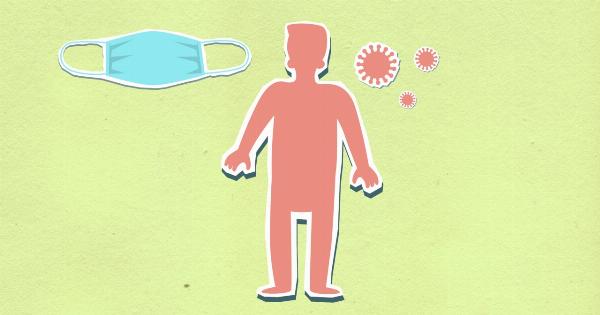Home study, the practice of educating children at home instead of in traditional schools, has become increasingly popular in recent years.
The flexibility, individualized attention, and personalized curriculum that home study offers have been touted as benefits for children’s academic and emotional development. However, it is important to consider the potential impact of extended home study on a child’s immune system.
1. Reduced Exposure to Illnesses
One of the main effects of extended home study on a child’s immune system is a reduced exposure to illnesses.
In a traditional school setting, children are constantly surrounded by their peers, increasing the likelihood of exposure to infections and viruses. By studying at home, children are exposed to a smaller number of individuals, reducing the risk of contracting contagious diseases.
2. Weakened Immune Response
While reduced exposure to illnesses may seem beneficial, it can also result in a weakened immune response. The immune system needs to be exposed to various pathogens to build a strong defense mechanism.
Extended home study limits a child’s exposure to different microbes, potentially hindering the development of a robust immune system.
3. Limited Social Interaction
Extended home study can also lead to limited social interaction for children. Interacting with peers is crucial for the development of social skills, emotional intelligence, and overall well-being.
Studies have shown the positive impact of social interaction on the immune system. Lack of regular contact with other children may negatively affect a child’s immune response, as social interaction plays a role in strengthening the immune system.
4. Increased Risk of Allergies
Extended home study may contribute to an increased risk of allergies. Studies have shown that children who grow up in overly sterile environments are more likely to develop allergies later in life.
Reduced exposure to common allergens and bacteria during extended home study may hinder immune system development and increase susceptibility to allergic reactions.
5. Impact of Stress and Anxiety
Stress and anxiety can have a significant impact on the immune system. Extended home study may contribute to feelings of isolation, stress, and anxiety in some children.
Chronic stress and anxiety have been linked to a weakened immune system, making children more susceptible to infections and illnesses.
6. Importance of Physical Activity
Extended home study can sometimes lead to a sedentary lifestyle for children. Lack of physical activity can weaken the immune system by reducing circulation and impairing various immune functions.
Regular exercise promotes the production of antibodies and enhances the immune response, reducing the risk of illnesses and infections.
7. Role of Nutrition
Nutrition plays a crucial role in maintaining a healthy immune system. Children who study at home are more likely to have access to home-cooked meals and a well-balanced diet.
By focusing on nutritious foods, parents can support their child’s immune system, providing essential vitamins, minerals, and antioxidants necessary for optimal immune function.
8. Seasonal Variations
Extended home study may also affect a child’s exposure to seasonal variations. Children who attend traditional schools are more likely to be exposed to different weather conditions throughout the year.
This exposure allows their immune systems to adapt and respond accordingly. Conversely, children studying at home may have limited exposure to varying environmental conditions, which can affect the immune system’s ability to adapt and defend against seasonal illnesses.
9. Balancing Home Study with Outdoor Activities
To mitigate the potential negative effects of extended home study on a child’s immune system, it is important to strike a balance between academic pursuits and outdoor activities.
Regular outdoor play and exploration can offer exposure to different environments, natural elements, and interactions with other children, fostering a stronger immune system.
10. The Role of Vaccinations
Vaccinations play a critical role in protecting children against various infectious diseases.
Regardless of the type of education a child receives, ensuring they are up-to-date with recommended vaccinations is essential for maintaining a strong immune system. Vaccines help stimulate the immune system and provide antibodies that fight off specific infections, reducing the risk of serious illnesses.






























